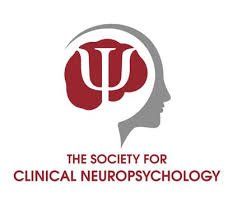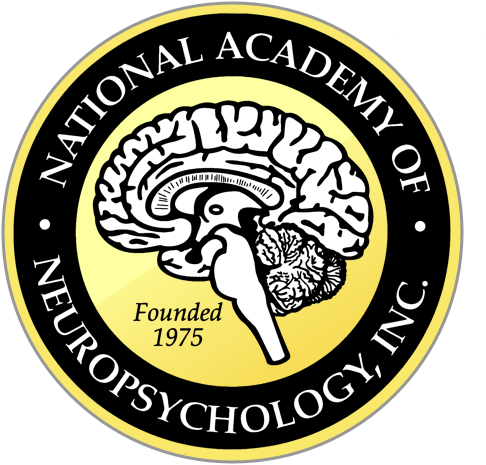Saranya Patel, PhD, MRC
CLINICAL NEUROPSYCHOLOGIST, COGNITIVE REHABILITATION SPECIALIST
-
Alzheimer’s Disease
Dementia
Cognitive Impairment
Mild Cognitive Impairment
-
Adult neuropsychological assessment
Computerized cognitive assessment
Psychometrics and diagnostic accuracy of neuropsychological tests
Cognition in aging, MCI and dementia
Cognitive and biomarker signs of early cognitive impairment
-
Doctor of Philosophy (Ph.D.) in Clinical Psychology
Palo Alto University – Palo Alto, CA (APA-Accredited)
Emphasis: Neuropsychology
Dissertation: Speed of Information Processing, Mood, and Motor Impairments in HIV: A Comparison with Parkinson’s Disease
Master of Rehabilitation Counseling (M.R.C.)
Bachelor of Arts (B.A.) in Psychology
Austin College – Sherman, TX
-
Postdoctoral Fellowship in Adult/Geriatric Neuropsychology
Emory University School of Medicine – Atlanta, GA
Emory Rehabilitation Hospital, Neuropsychology Inpatient & Outpatient Clinics
Training Director: Suzanne Penna, Ph.D., ABPP-CN
Focus: Comprehensive neuropsychological assessment for TBI, stroke, dementia, movement disorders, and infectious diseases, cognitive rehabilitation therapy, and supervision of doctoral trainees.
-
Item description
-
Peer-Reviewed Journal Articles
Ikanga, J., Sundaram Patel, S., Roberts, B.R., Schwinne, M., Hickle, S., Verberk, I., Epenge, E., Gikelekele, G., Tshengele, N., Kavugho, I., Mampunza, S., Yarasheski, K. E., Teunissen, C.E., Stringer, A.Y., Levey, A., & Alonso, A. (2023). Association of plasma biomarkers with cognitive function in persons with dementia and cognitively healthy individuals in the Democratic Republic of Congo.Alzheimer’s & Dementia: Diagnosis, Assessment & Disease Monitoring, 15(4), e12496.
Sundaram Patel, S., Müller-Oehring, E.M., DeVaughn, S., Fama, R., Brontë-Stewart, H.M., Poston, K.L., & Schulte, T. (2021). The role of emotion in daily functioning in older adults living with HIV and individuals with Parkinson’s disease.Neuropsychology.
Sundaram, S.E., Staffaroni, A.M., Walker, N., Casaletto, K.B., Casey, M., Golubjatnikov, A., Metcalf, S., O’Leary, K., Wong, K., Benisano, K., Forner, S., Gonzalez Catalan, M., Allen, I.E., Rosen, H.J., Kramer, J.H., & Geschwind, M.D. (2020). Baseline neuropsychological profiles in prion disease predict survival time.Annals of Clinical and Translational Neurology, 7(9), 1535-1545.
Book Chapters
Sundaram Patel, S., Müller-Oehring, E.M., & Schulte, T. (2019). Occipito-temporal sensitivity and emotional faces in alcohol use disorder. In V. Preedy (Ed.), The neuroscience of alcoholism: Mechanisms and treatment. Cambridge, MA: Academic Press.
Chen, S., Sundaram, S.E., & Schulte, T. (2019). Brain development effects: Prenatal exposure to drugs and alcohol. In R. Miller & E.T. Benson (Eds.), The neuroeducation toolbox: Collaborative approaches to infusing neuroscience principles in counseling and psychotherapy. Cognella Academic Publishing.
Professional Memberships
National Academy of Neuropsychology
〰️
International Neuropsychological Society
〰️
APA Division of Clinical Neuropsychology
〰️
Asian Neuropsychological Association
〰️
National Academy of Neuropsychology 〰️ International Neuropsychological Society 〰️ APA Division of Clinical Neuropsychology 〰️ Asian Neuropsychological Association 〰️
✺ Frequently asked questions ✺
-
I specialize in adult and geriatric neuropsychology, working primarily with individuals experiencing memory concerns, cognitive changes, and neurological conditions. This includes patients with Alzheimer’s disease, Parkinson’s disease, stroke, traumatic brain injury (TBI), and other neurodegenerative disorders. I also see individuals dealing with cognitive difficulties related to chronic medical conditions, infectious diseases, and aging-related changes.
-
If you or a loved one are experiencing changes in memory, attention, language, or problem-solving skills, a neuropsychological evaluation can provide insight into cognitive strengths and weaknesses. These assessments are particularly helpful in diagnosing conditions like dementia, clarifying concerns about cognitive decline, or establishing a baseline for future monitoring. If you’re unsure whether an evaluation is right for you, discussing your concerns with a physician or neurologist can help determine if a referral is appropriate.
-
A neuropsychological evaluation typically involves a clinical interview, cognitive testing, and discussion of medical history and daily functioning. Testing can take between 3 to 4 hours, with breaks as needed. You will complete structured tasks assessing memory, attention, processing speed, problem-solving, and other cognitive functions. The goal is to create a comprehensive picture of your cognitive health to guide diagnosis and treatment recommendations.
-
No, but you will have a follow-up appointment to review the findings. After your evaluation, I will carefully analyze your results and compile a detailed report, which includes diagnostic impressions, cognitive strengths and weaknesses, and recommendations for treatment or support. This process typically takes 1 to 3 weeks, after which we will schedule a feedback session to discuss the results and next steps.
-
Yes, I accept referrals from neurologists, primary care physicians, psychiatrists, and other healthcare providers who have concerns about a patient’s cognitive function or mental health. I also collaborate with specialists in geriatrics, movement disorders, infectious diseases, and rehabilitation medicine to provide comprehensive assessments tailored to each patient's needs.
-
After reviewing your results, I will provide personalized recommendations based on your cognitive profile. This may include medical follow-ups, cognitive rehabilitation strategies, therapy referrals, or lifestyle modifications to support cognitive health. If necessary, I work closely with your referring provider to ensure appropriate next steps for treatment and management. If your condition requires ongoing monitoring, we may schedule periodic follow-up assessments to track any cognitive changes over time.




